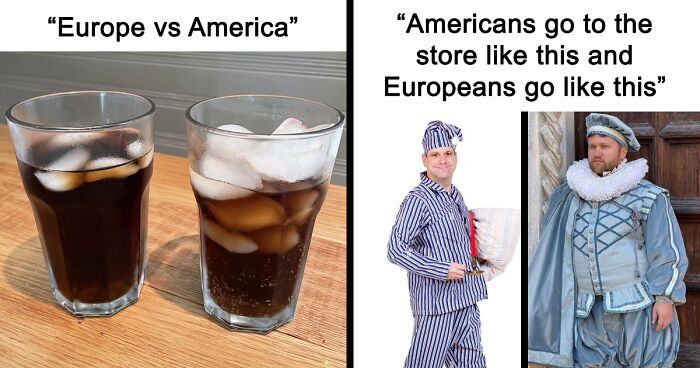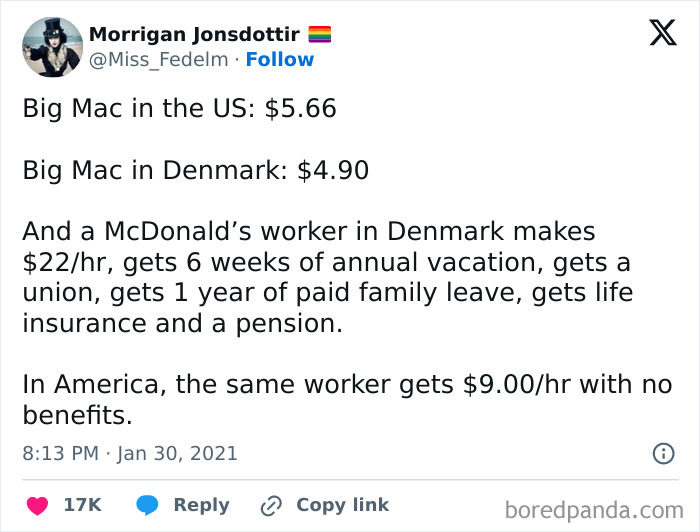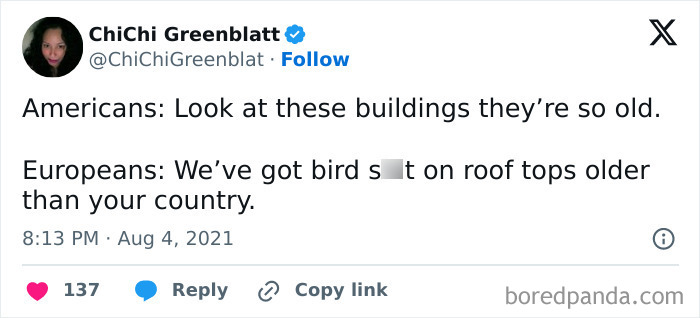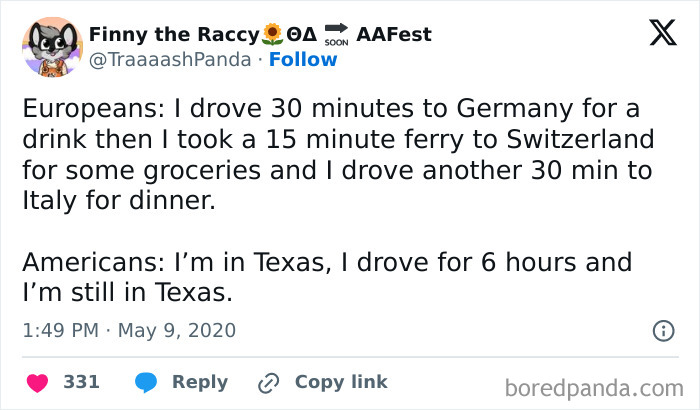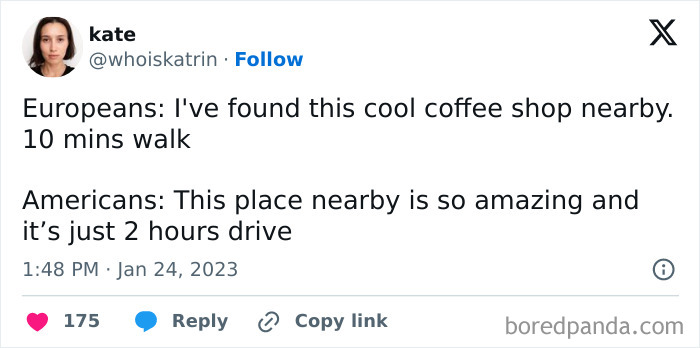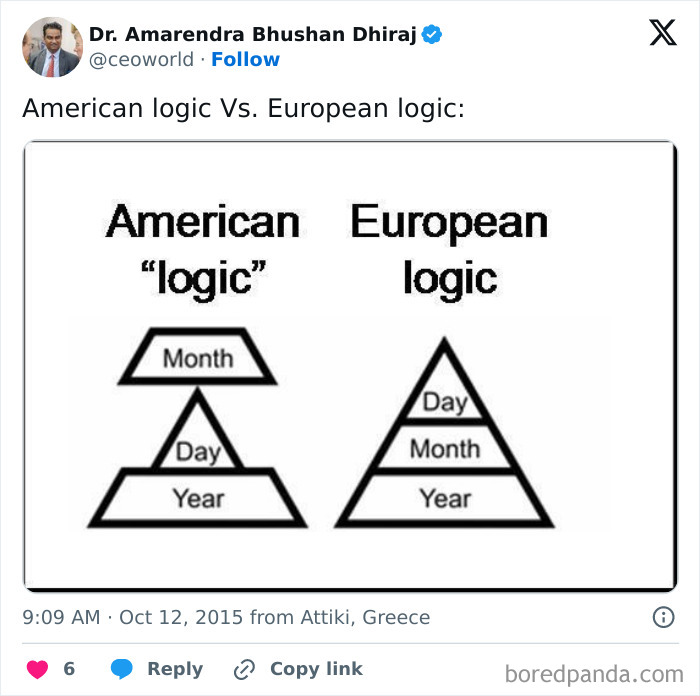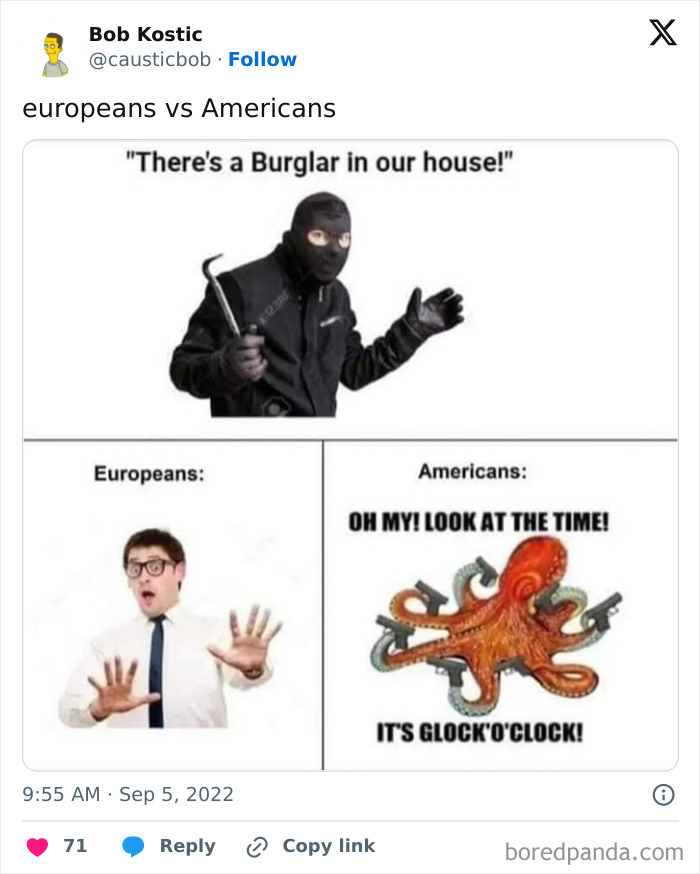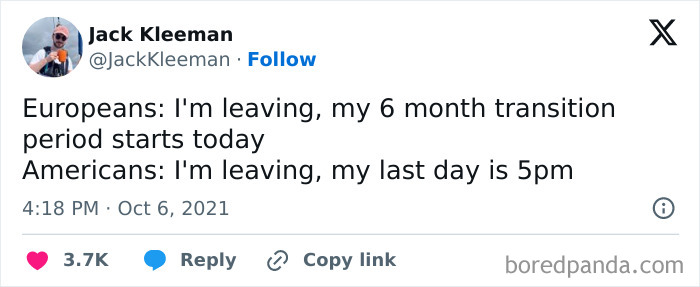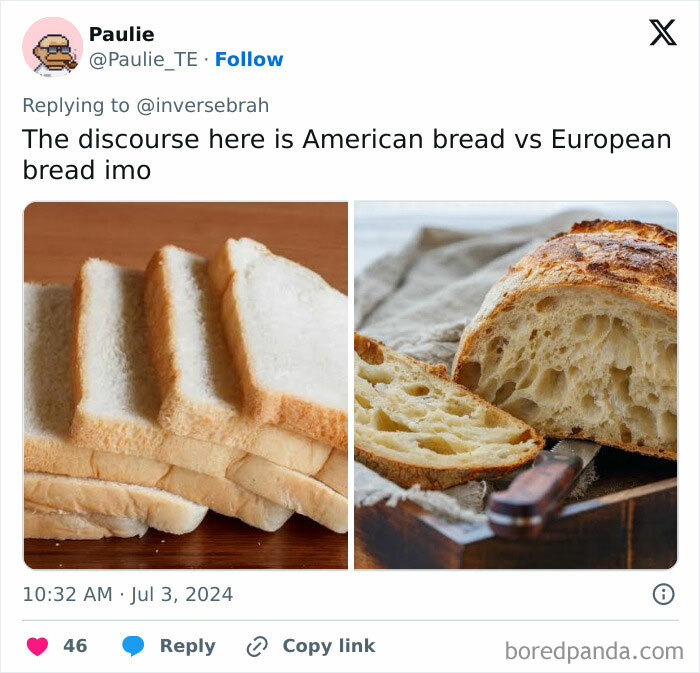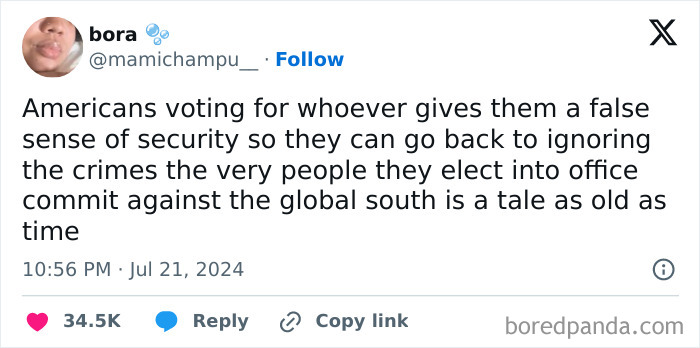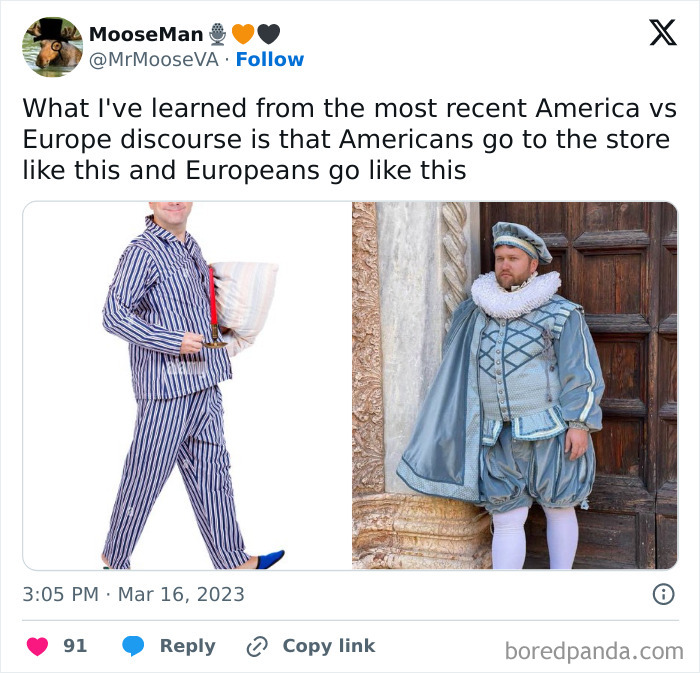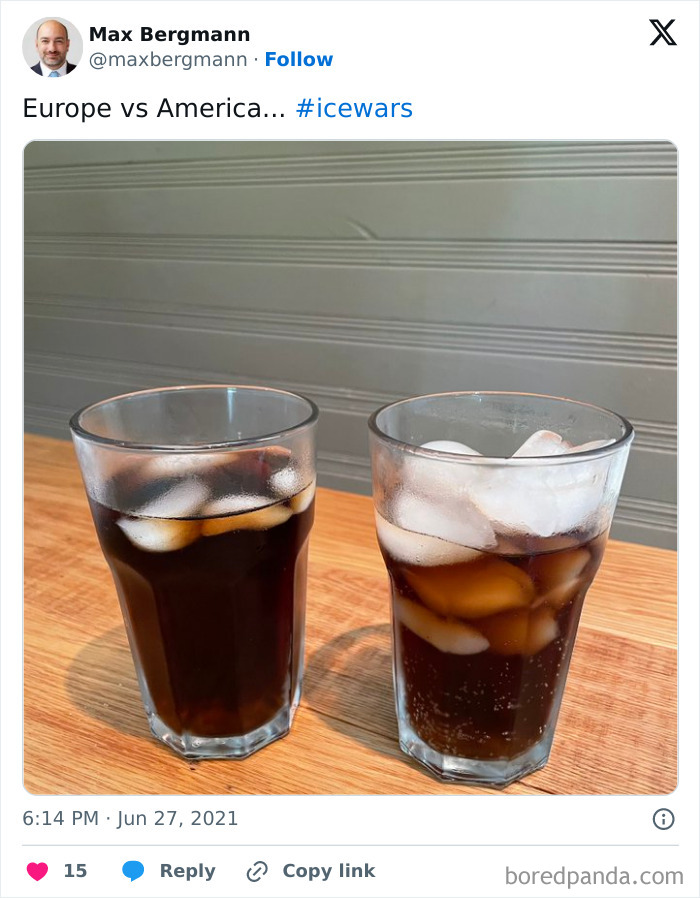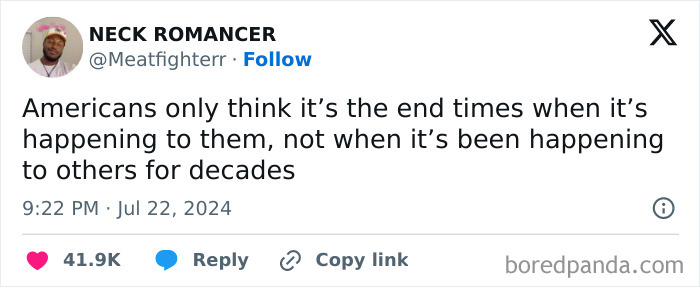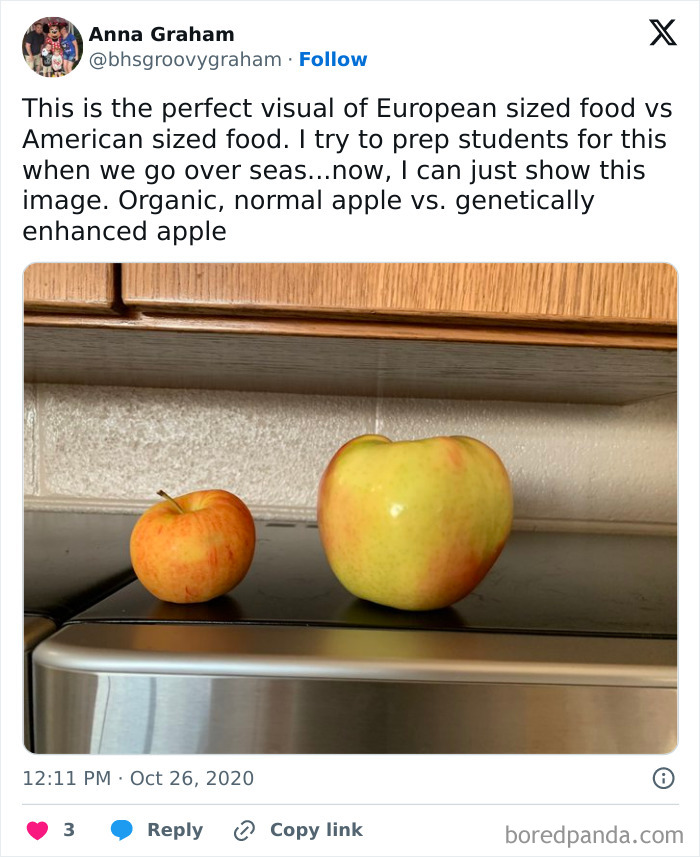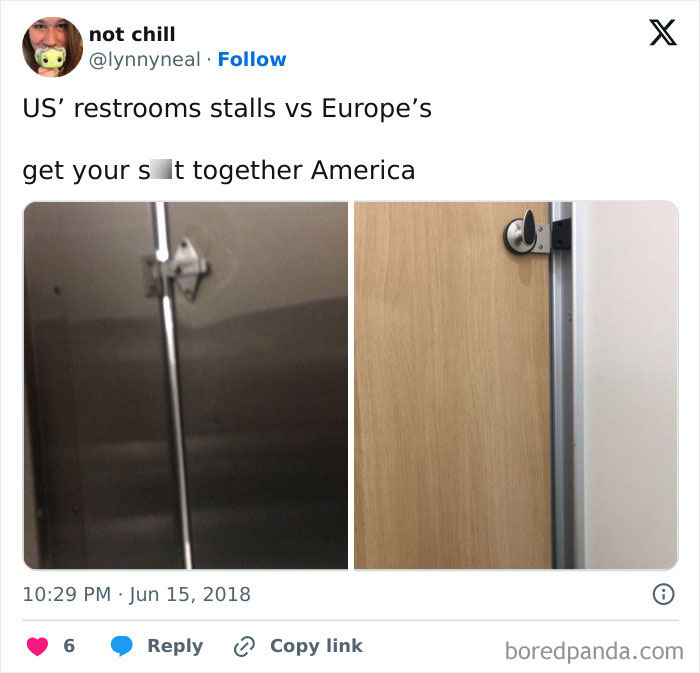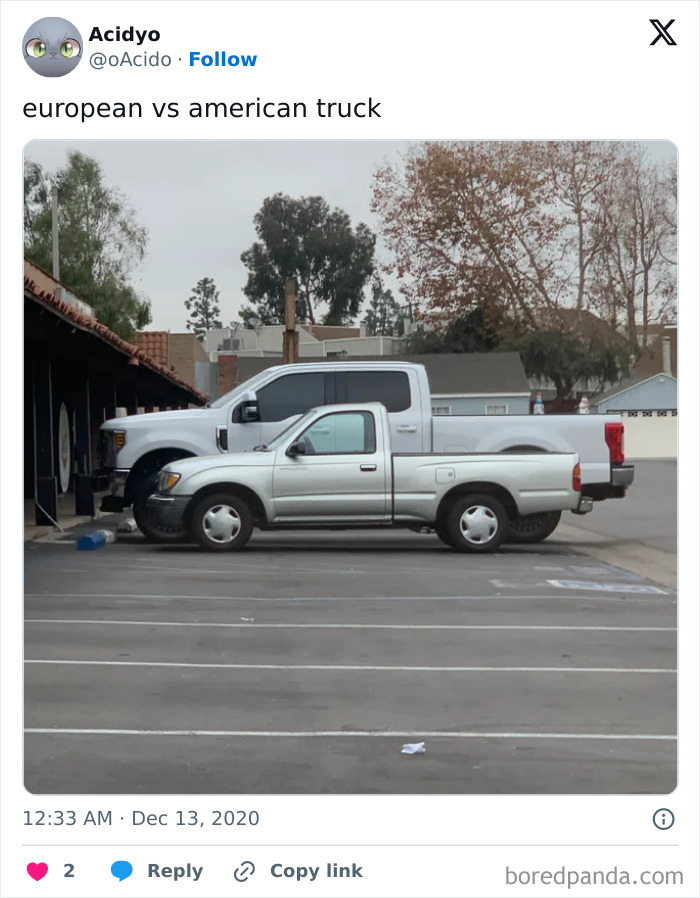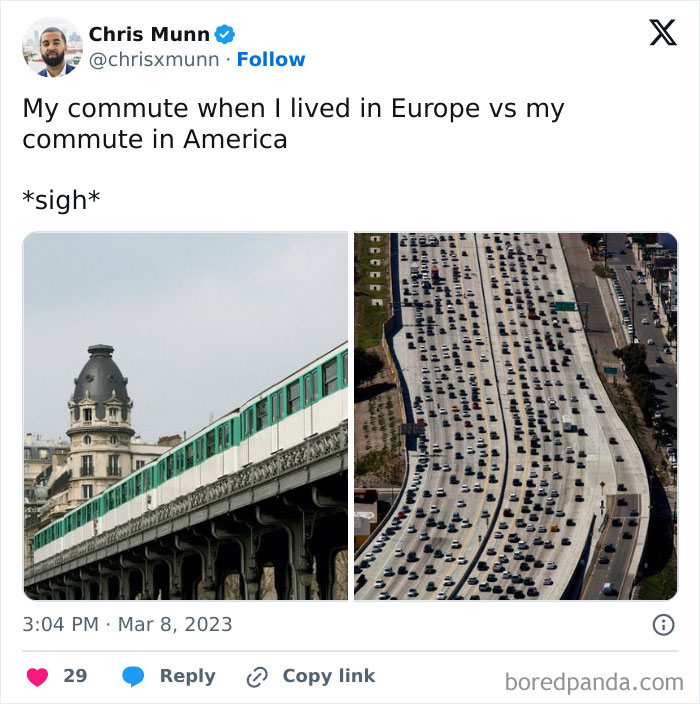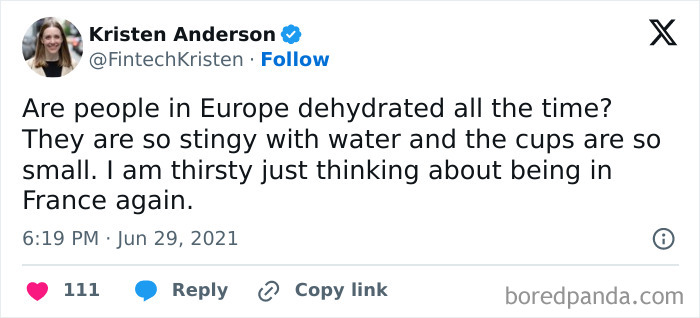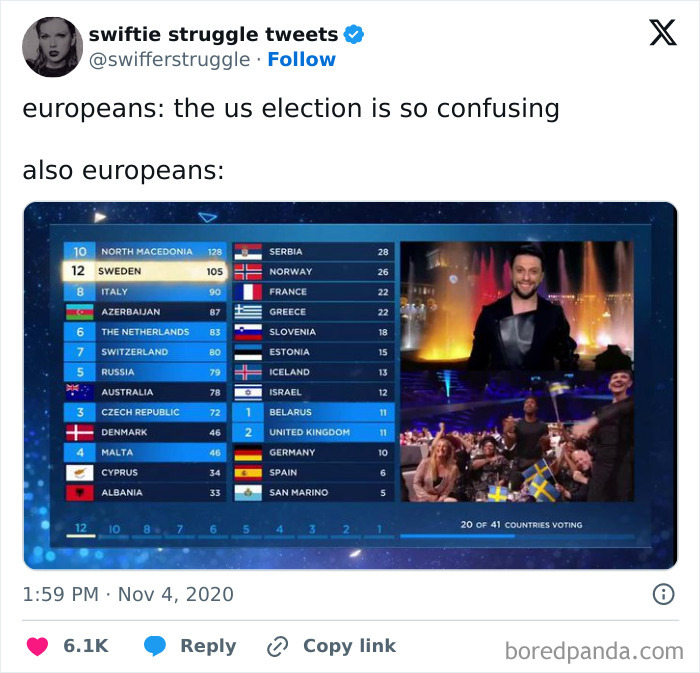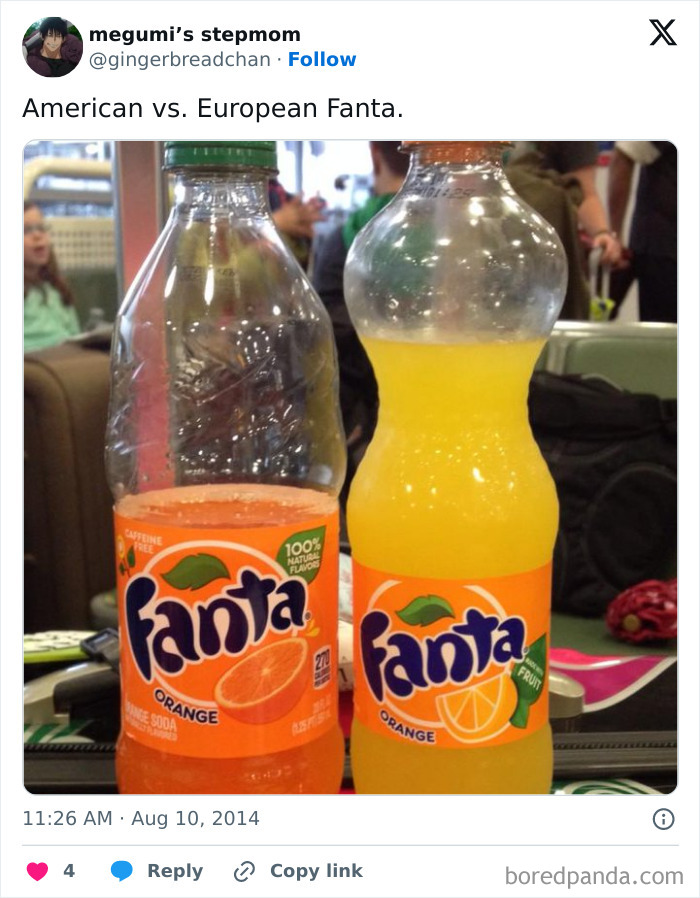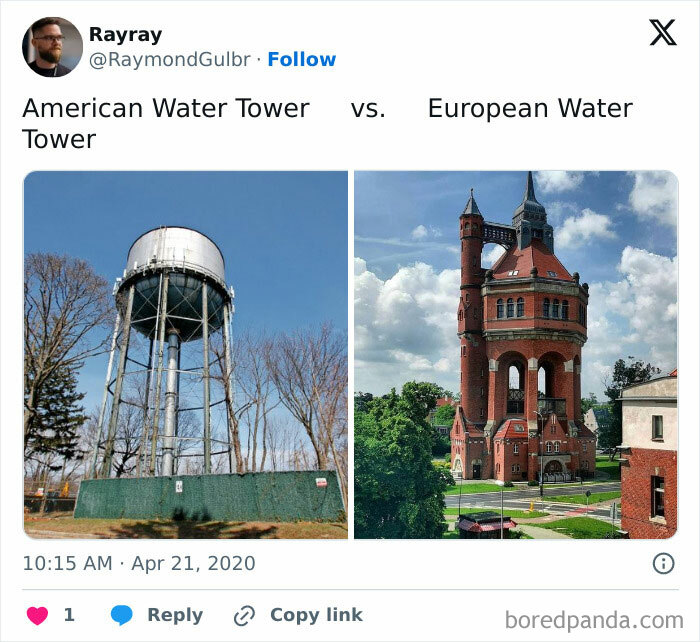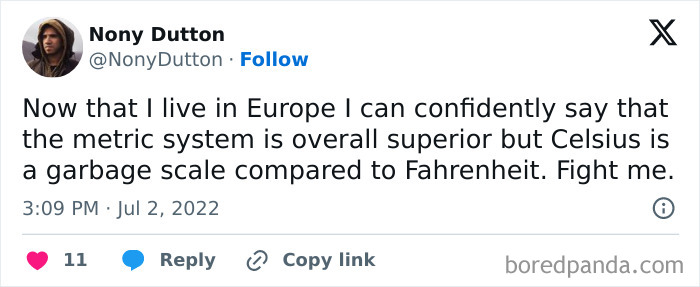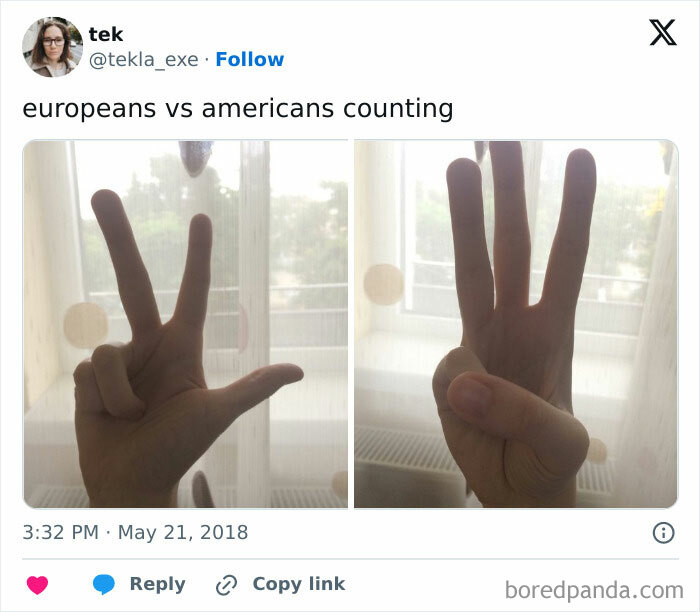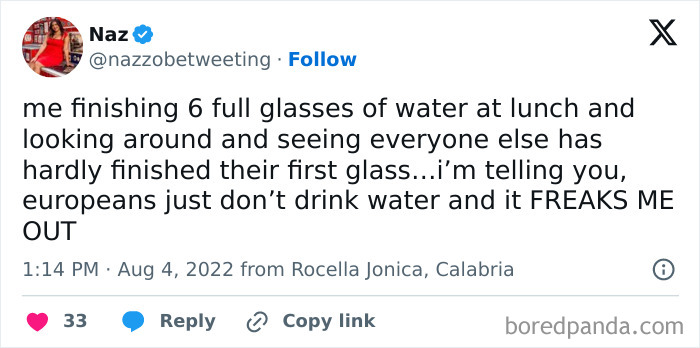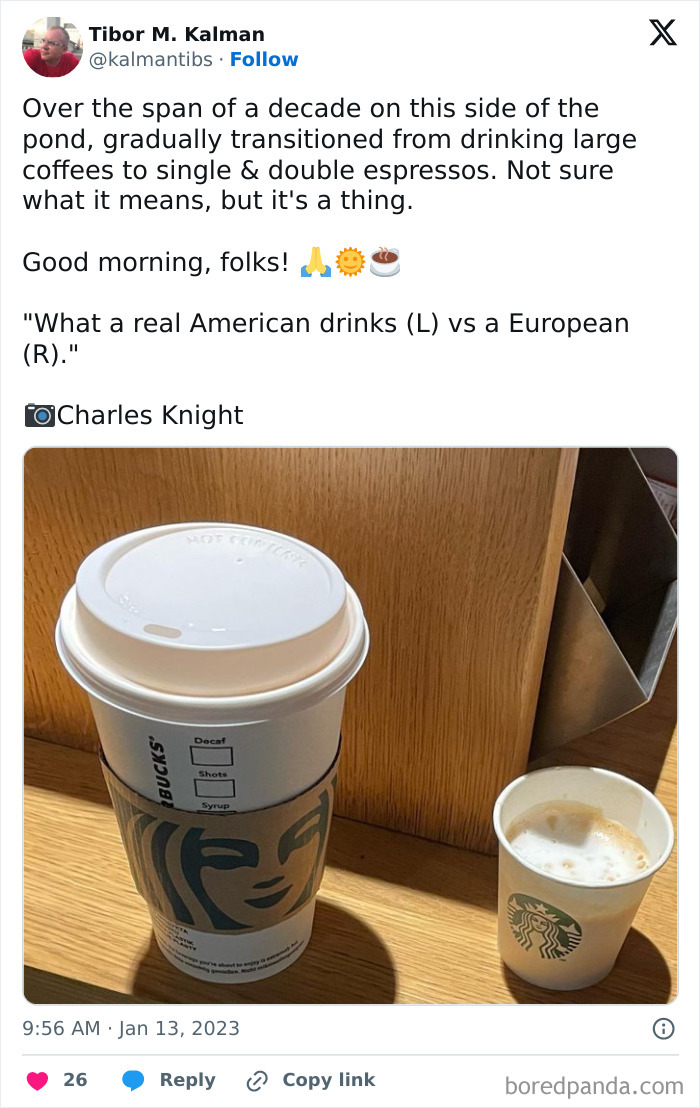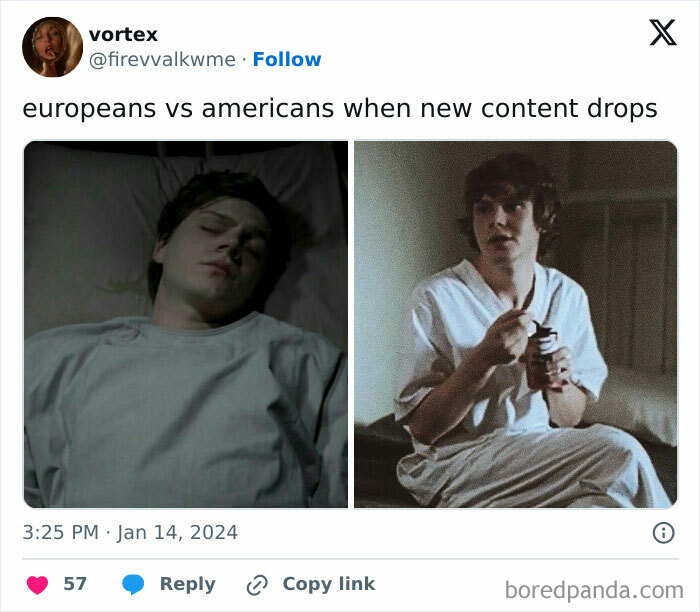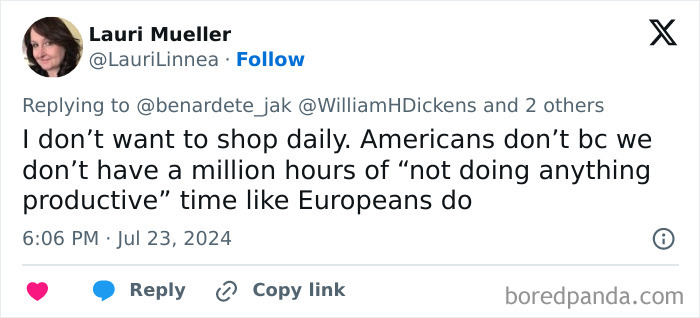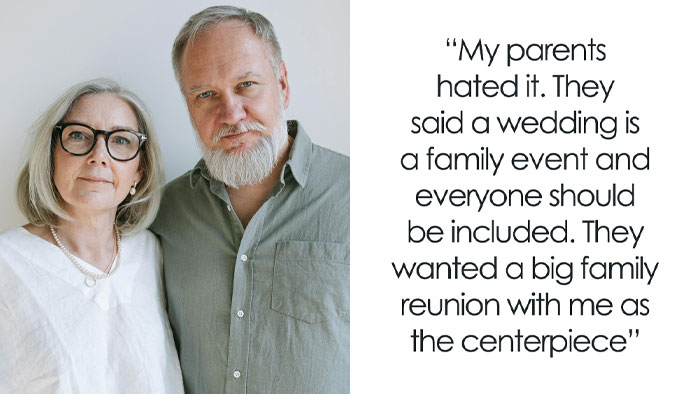Do you prefer pancakes or crepes? Say “football” or “soccer”? Drive to work or pedal your way on a bicycle? These simple choices often spark entire debates about the differences between life in Europe and the U.S.
People never seem to tire of comparing the two, especially on X (formerly Twitter), where the internet’s wittiest minds share hilarious observations about each other’s cultures. We’ve combed through their posts and rounded up some of their most amusing takes for you below. Scroll down to check them out and remember to upvote your favorites!
This post may include affiliate links.
"God bless america!"? by now it should be "God help america"
It’s well known that Americans and Europeans often argue about whose way of living is better. But to truly understand the differences, it’s helpful to hear from someone who has lived in both places.
Elizabeth Yuko, a journalist and professor of ethics at Fordham University, spent nearly a decade in Ireland before returning to the U.S. Reflecting on her experience, she says, “I knew that moving back to the United States after eight years in Europe would mean some sort of reverse culture shock. While I anticipated the big changes—like less paid time off and different attitudes toward food—it was the little things that really stuck out.”
Poor, amateurish Canadians, try English measurements; I'm 6'2", weigh 19 stone, i take my milk and beer in pints and any other liquid in litres, my burgers are in lbs and my chicken in kg, I'll slow down from 70mph for the last 300m of the motorway before a junction. Oh, and if I had a horse it would weigh in imperial tons whilst trotting its chains and furlongs. If needed though you can still find things in hogsheads and hundredweight by the bakers dozen!
One of the things Yuko had to readjust to was the culture and habits surrounding grocery shopping. In Dublin, she typically shopped at modest-sized local stores near her house. “I had the option of getting my fruits and vegetables from the green grocer, my meat from a butcher, and my bread from a bakery. For everything else, I’d stock up at small grocery stores,” she explains. Large supermarkets were available but less accessible without a car, so she seldom visited them.
“When I moved back to the United States, I was overwhelmed by the sheer variety of foods in supermarkets—especially cereals, for some reason. The whole shopping process took longer because I had so many more choices.”
The only thing a ten minute walk will get me is in a corn field or in the woods
Yuko was also struck by the constant presence of prescription-drug commercials when she returned to the U.S. There, it’s typical to see ads for everything from antidepressants to asthma medication. However, after so many years living in Ireland, she realized just how unusual they are.
“The European Union has strict guidelines on TV ads for prescription drugs, so they’re not part of the advertising landscape,” she says. “And when you think about it, rewriting the lyrics to pop songs to try and sell diabetes medication to potential customer-patients is a pretty odd premise.”
One more surprising difference Yuko encountered was the style of local news in the U.S. “Dramatic music, flashy graphics, and glamorous newscasters—these are all parts of local news programs that I took for granted,” she says. In Ireland, with a population of 4.8 million, national and local news are combined into one “straightforward, no-nonsense” broadcast.
“Adding to the somber nature of the news was a one-minute segment immediately preceding one channel’s six o’clock news that used to feature the Catholic prayer ‘The Angelus,’ but has been toned down to tolling bells and different scenes of everyday life.”
“Though I didn’t expect a minute of quiet reflection before the American local news, it did take a while to get used to the high-energy, sensational local-news broadcasts in the United States again,” Yuko notes.
The most incredible thing I ever witnessed on the internet happened a few years back. Europe had a particular hot summer, and people were dying left and right, and some Americans commented that the temperatures are not even that high, and that in their state it gets way, WAY hotter. But they forgot that European buildings rarely have AC. So the next year was that year when half of the US turned into an ice cube, water pipes were freezing, heating stopped working and it was all around miserable. In the comments of a news video on YouTube Europeans and Canadians were giving advice on how to survive the cold. (dressing in layers, how to walk and drive on an icy road, how to keep pipes from bursting etc.) The Americans were so incredibly grateful, and admitted that they were making fun of Europeans complaining about the heat the year before. But now they understand what they meant when they were saying that the infrastructure was not made for specific temperatures. It was so wholesome.
My job in medical office: Patient - I sent you an email this weekend. It's 9am on Monday, Felicia, and I don't do out of hours or weekends, thanks.
You may be amazed to learn that refrigerators in Europe and America aren’t the same size either. “The first house I rented in Ireland had three bedrooms, two bathrooms… and one tiny refrigerator,” Yuko recalls. She soon discovered this was standard in most homes, except for some larger families.
Yuko eventually came to love the smaller fridge because it reduced waste and encouraged more frequent shopping for fresh foods. “When I first moved back to the States, I couldn’t wrap my head around the fact that I had my very own giant ‘American’ refrigerator all to myself in a small studio apartment.”
Yuko was also fascinated by how elections are handled in the U.S. and Ireland. Before moving to Europe, she had volunteered on several political campaigns and wanted to continue this work abroad, so she decided to intern with the Irish Labour Party.
“There are no paid political television commercials,” says Yuko. “Each party is permitted a short broadcast before a general election, but it’s typically focused on the party itself rather than specific candidates, apart from the party leader.”
“When I came back to the United States, the election season here seemed so long, and all the TV commercials served as a reminder of the importance of money in American politics.”
Whenever I get a fast food meal here (not very often) I always request the drink 'No ice, please', you get twice the drink.
Yuko sometimes misses the ease of travel she enjoyed in Europe. “I could pop over to France or Finland for a short trip without totally breaking the bank,” she shares. Thanks to budget airlines like Ryanair and EasyJet, traveling to other countries was very affordable, and having friends across the continent meant she often had a place to stay.
Is no one gonna mention the giant gaping space under the stall door?
In contrast, air travel in the U.S. isn’t as straightforward. “While there are flight deals to be had in America, the budget options are limited, making air travel less accessible,” Yuko says. “With the exception of Canada, Mexico, and parts of Central America, most of my quick trips now are within the United States. Though staying in the same country is a change, it has been interesting getting to explore new states and regions.”
Ooohhh..... I am Danish, I was taught English in school from when I was 10yo, from I was 12 I had German added and when I was 16 I chose to have French for half the school year. In high school I had Latin and at the uni I had Old Norse. For fun I have looked into Arabic, Hungarian, and Italian. I just really love languages and I feel so lucky that I learned so many just by going to school. 🤘🤓🤘
Yuko’s experiences reveal some of the many ways life varies between Europe and the U.S. However, instead of focusing on which is better, let’s appreciate the unique qualities each place has to offer. After all, it’s these differences that make our world such an interesting place.
I feel the same way about Farenheit as OP does about Celsius. How difficult is it. O° = freezing 100° = boiling
Is this supposed to be irony? I mean, it is Starbucks for gosh darn sakes. Besides Starbucks being in Europe, I think there would be better choices.
Working yourself to death at the expense of family and a decent balanced life is not the flex you think it is.
Maybe stay the hell out of Europe, I'm sure the locals would appreciate your absence.
•
Not Quite Done Yet!
Discover Your Competitive Edge
Subscribe Premium to Compare Your Stats with Others
More Premium features:
How did you score compared to others?
Your general stats:
| User | Result | Reward |
|---|---|---|
  | / 20 | |
  | / 20 | |

BoredPanda: Americans are slack-jawed hillbillies wallowing around in their own filth while Europeans are erudite scholars preserving a rich cultural heritage. Honestly though, stop pitting people against each other. This site has become such a hate filled place anymore. You're ruining your site and losing reader with nasty threads like this.
BoredPanda: Americans are slack-jawed hillbillies wallowing around in their own filth while Europeans are erudite scholars preserving a rich cultural heritage. Honestly though, stop pitting people against each other. This site has become such a hate filled place anymore. You're ruining your site and losing reader with nasty threads like this.

 Dark Mode
Dark Mode 

 No fees, cancel anytime
No fees, cancel anytime 






